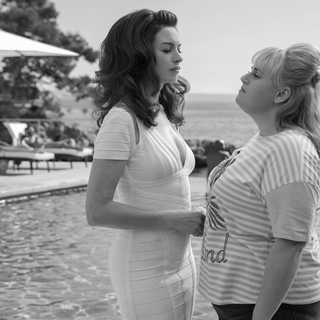Sunsets bore me. A trip to the mountains is a snooze fest. I’d rather think about the periodic table than gaze out at rolling hills or the open ocean. I’ve watched too many horror films to find the quiet in nature, especially at nighttime, soothing. I can sleep through a trash truck roaring to high heaven and back, but one chirp from a cricket and I want to pull my hair out. Such is my plight, or so people around me made me believe. That my perception of nature is a disadvantage, that my inability to appreciate it probably means there’s something wrong with me, that maybe I’m not “one with myself.” Every time I’d roll my eyes so hard I thought my eyeballs would disappear into my hairline.
Beauty is all about perception, or in the eye of the beholder, as they say. A study that measured identical and non-identical twins’ responses to 200 faces, to judge their attractiveness, found that identical twins agreed no more than anybody else, and had different perceptions of beauty, “suggesting that appreciation of beauty is learned, not inherited,” Fast Company reported. While the study was only done for face attractiveness, it established that our perceptions of beauty are largely influenced by environmental factors. The study authors also stated that, “Alternatively, [the study] might act broadly on any judgment that involves a face or on any social judgment.” Drawing a parallel to perceiving beauty elsewhere, say, in the natural world, my view has been informed by my life in the city, the environmental factors being crowds, concrete, and incessant car honks.
What we find beautiful largely stems from our own experiences. That begs the question – is anything inherently beautiful, or it’s so because we deem it thus? If it is all about perception, are humans naturally inclined to love nature and appreciate natural beauty?
It’s complicated. For those connected to nature, who through their experiences find nature beautiful, report a higher psychological well-being, satisfaction and gratitude. There exists a ‘Connectedness to Nature’ scale that measures an individual’s connection to nature and posits that every individual will benefit from their relationship to the natural world. This isn’t, however, an absolute concept. A subsequent study published in the Journal of Environmental Psychology found that the above-mentioned claim was true only if an individual regularly interacts with the natural world. If someone grew up engaging with nature and has a strong foundation to the relationship, then they would be more emotionally attuned to natural beauty. If they didn’t however, like yours truly, the psychological wellbeing aspect doesn’t come into play. Psychologically, nature will not inherently benefit you, unless you are conditioned to love it.
Related on The Swaddle:
One Million Species Face Extinction Because of Humans: UN Report
Nature is not, by its very essence, beautiful, but your projection onto it, informed by life experiences, can make it so. There is a need, however, to be more connected to the natural world now, more so than ever. The environment is slowly dying, and apathy toward it is the last thing we want to inculcate in future generations. Influential ecologist Aldo Leopold said, “We abuse land because we regard it as a commodity belonging to us. When we see land as a community to which we belong, we may begin to use it with love and respect,” as quoted in “The Connectedness to Nature Scale: A Measure of Individuals’ Feeling in Community with Nature”. A connection to the natural world is imperative for “fostering ecological behaviour,” the study authors wrote, which will increase our incentive to protect the environment.
Personally, I’m still working on eliminating the apathy I feel toward the natural world. Just because I don’t find it beautiful or beneficial doesn’t rid nature of its ability to, well, sustain the entirety of the human race. As philosophy scholar Ronald Moore wrote in Natural Beauty: A Theory of Aesthetics Beyond the Arts: “It is my view that people grow into their natural beauty judgments in the way they grow into their religions and their politics — gradually, socially, individualistically, but not inevitably.”
It’s not impossible to change attitudes derived from lived experiences, and with the climate crisis fast-forwarding the end of the world, it’s imperative I, and any other like me, grows into their natural beauty judgments, hopefully inevitably.




